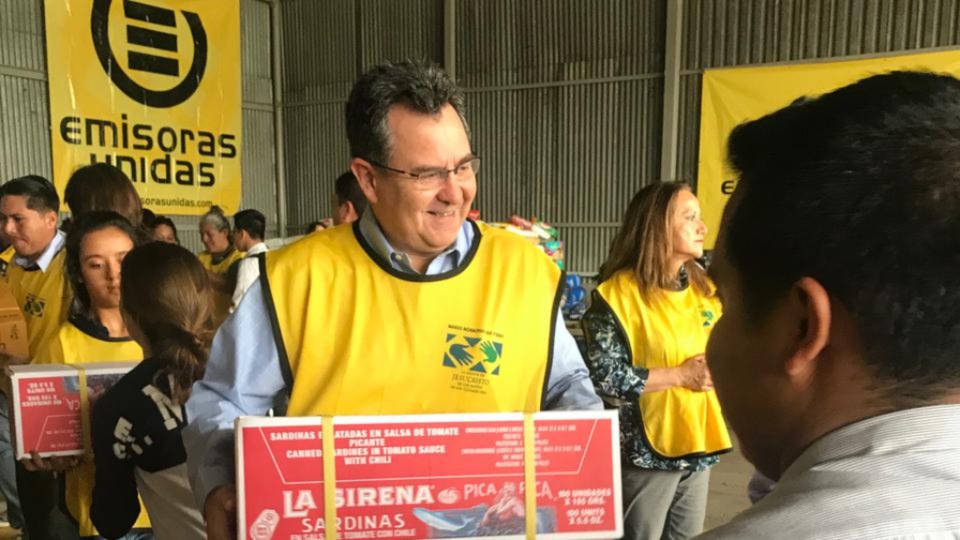Members of The Church of Jesus Christ of Latter-day Saints endeavor to follow the Savior’s admonition to feed the hungry, give drink to the thirsty, take in the stranger, clothe the naked and visit the sick and those in prison (see Matthew 25:35–36). Millions of people have benefited from temporal and spiritual assistance through humanitarian and welfare donations.
Breakdown of Donations
The following are some of the ways in which Latter-day Saint resources and donations are used.
In keeping with the biblical practice of tithes, Latter-day Saints offer one-tenth of their income to the Church. These funds are used to:
- Provide buildings or places of worship for members around the world.
- Provide education programs, including support for Church universities and seminary and institute programs.
- Support the Church’s worldwide missionary program.
- Build and operate temples around the world and administer the world’s largest family history program.
- Support the Church’s welfare programs, which serve people around the world regardless of religion, nationality or race.
On the first Sunday of the month, members of the Church in good health are encouraged to fast for two consecutive meals and donate generously to the Church the money they would have spent on food. These funds help those in local congregations, where Latter-day Saint leaders confidentially allocate funds to those in need, with the ultimate goal of self-reliance.
Latter-day Saint Charities, the nonprofit humanitarian arm of the Church, focuses on relieving suffering, fostering self-reliance and providing opportunities for service for people around the world regardless of religion, nationality or race. It sponsors ongoing initiatives such as maternal and newborn care, immunization, clean water, vision care, wheelchairs, refugee response and emergency and disaster relief throughout the world.
When a disaster strikes, Latter-day Saints work with local Church leaders, government officials and trusted partners to determine what supplies and food are needed. Materials are then purchased or assembled locally or shipped from Latter-day Saint storehouses. After urgent needs are met, the Church looks for additional ways to aid in long-term efforts.
One hundred percent of donations are used for humanitarian efforts. The Church absorbs its own overhead costs and utilizes a global network of volunteers who generously contribute their time and expertise. Volunteers often live in the communities in which they serve.
Latter-day Saints contribute to the welfare program, which is primarily designed to care for the needy within the stewardship of the Church. At the discretion of bishops, local funds can, where possible, assist others in need who are not of our faith. Individuals typically depend on the Church’s food assistance for a few weeks to several months before they become self-sufficient once again. In addition to meeting the need for food, clothing and shelter, the program provides vocational rehabilitation and employment opportunities for citizens, immigrants and refugees. The approach is to help people become self-reliant by teaching skills and providing resources for a self-sustained life.

Elder Adrián Ochoa
Elder Adrián Ochoa, president of the Central America Area, assists in volcano relief efforts at a collection center in Guatemala City, Monday, June 4, 2018.© 2022 by Intellectual Reserve, Inc. All rights reserved.Donations to the Perpetual Education Fund support Latter-day Saints in nearly 70 countries outside the United States to help them afford technical or vocational education. Loans are granted at minimal interest, and participants do their best to repay the loan as soon as possible to become free of debt and to enjoy greater self-reliance. Repayments from existing participants and donations are used to make new loans to qualified students. Since the start of the PEF program in 2001, over 90,000 loans have been offered in nearly 70 countries around the world. Donations to the Perpetual Education Fund also help support individuals in 130 countries to become more self-reliant through courses focused on getting an education, finding a job, improving finances and starting or growing a business.
Family Services draws on charitable donations to offer counseling services related to addiction recovery, familial conflict resolution, abuse and other issues for individuals, couples and families.
The Church sponsors the Helping Hands program, which brings together members of the Church and their neighbors to provide community service all around the world. In recognizable yellow shirts or vests, tens of thousands of volunteers help people whose lives have been affected by disasters or other emergencies. Volunteers also partner with government and nonprofit organizations to support and improve the communities where they live; they clean parks, restore public structures and perform various other community services. Originally started in South America, the program has since spread to nearly every corner of the earth. Hundreds of thousands of Latter-day Saints and other volunteers have donated millions of hours of service to their communities through this program.
Latter-day Saints strive to follow the scriptural counsel to be “anxiously engaged in a good cause” (D&C 58:27). There are many opportunities for service outside of what the Church provides, such as those found on JustServe.org. The Church encourages its members to be generous with their time and resources in any way they can.
Additional Resources
Penn Research Shows That Latter-day Saints Are Generous and Active in Helping Others
Commentary: Publicizing Good Works
05/06/2022